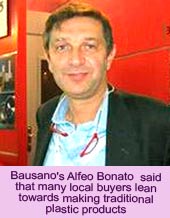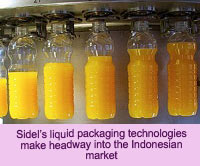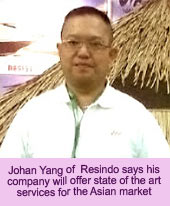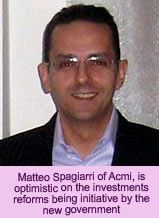The recently concluded 27th Plastics and Rubber (Propak) Indonesia held 19-22 November in Jakarta, had posted an increased number of participating firms and country representations this year, The event, which also incorporated application showcases of DrinkTech Indonesia, PlasPak Indonesia, and Mould & Die Indonesia, reportedly outperformed the previous attendance of last year’s edition, in terms of the breadth of participation, according to its organiser, PT Pamerindo Indonesia, It reported that more than 700 firms from over 25 countries took part in the exhibition; furthermore, the show hosted group pavilions from China, Germany, Italy, Korea, Singapore and Taiwan.
What this uptrend implies is that interests among foreign firmsare snowballing for Indonesia’s plastics industry. Industry events such as Propak Indonesia are effective indicators of how receptive industry players are to the local sector’s market competitiveness.
The latest UK Trade and Investments data published in April this year cites Indonesia as the 16th largest economy in the world, andis projected to be the fifth largest economy in the world by 2030.
Endowed with a sizeable population that is increasing by an estimated 4.5 million yearly,as well as a growing middle class that is forecast to balloon tp 141 million by 2020; and accounts for nearly half of the Southeast Asia’s gross domestic product (GDP);the region’s largest economy sees its domestic consumption (which accounts for more than half of the country’s GDP) building up
Rites of passage
Indonesia’s economic competence has endured critical milestones, including the pre- and post-Asian crisis in 1997, whereby the country’s growth and currency plummeted, according to a report by the United Nations Industrial Development Organisation (UNIDO).
Nevertheless, Indonesia’s manufacturing sector had served as an anchor to keep the economy afloat, even though the latter barely rode out the impact of manufacturing production globalisation, and liberalisation and free trade agreements before the Asian crisis.
Meanwhile, the country’s investments climate has been marred by incidences of corruption, bureaucracy,deficient infrastructure, and adverse regulatory environment. To overturn these, analysts said that its institutional and legal framework needed to be revisited.
Hence, political and economic reforms that characterise the new Government of President Joko (Jokowi)Widodo (who was sworn into office in October), are regarded as positive developments for the country that bids to becoming an investments-conducive destination in Asia. Measures like fuel subsidy cut have been taken to channel saved up funds for infrastructure and other social projects. Meanwhile, the rest of the global business community awaits the “talk” to be put in action.
Dearth of raw materials
Pitting against other dominant Asian countries, the so-called tiger cub economies, Indonesia can easily outpace the fast growing economies of Malaysia, Thailand, and the Philippines. Nonetheless, although not entirely a liability, the world’s fourth largest nation, with 253.6million population (204 estimate according to the CIA Factbook), has yet to wean itself from being import-dependent.
The local plastics industry, particularly the downstream sector continues to rely on imported raw materials, according to information from the Global Business Guide, adding that this practice stunts the sector’s potential for growth on a global scale. Along with raw materials, dependence on imported machinery and equipment is also evidenced, according to UNIDO, driven by Indonesia’s relatively low capital goods industry.
In earlier reports, the Indonesian Downstream Plastics Producers Association (Aphindo) apparentlysaid that increasing the competence of the downstream industry would entail making available locally a sufficient supply of raw materials; doing so would lower costs of production as dependency on imported contents for their products could be minimised.
Imports of raw material for the downstream industry were valued at US$8.5 billion per year. Seeking tax facilities as well as removing import duties on upstream products that could not be produced locally wouldpromote cost efficiency of production, said Aphindo. Import duties from non-Asean countries are levied at 10%; and 5% for ASEAN member states.
Imported machines
There is a growing global trend of importing plastics processing machinery. Market research firm Freedonia forecast the demand growth for imported plastics processing machinery sales to advance by 7% annually to US37.6 billion through 2017, in sync with the rising resin consumption, and production for plastic packaged goods (the latter, Freedonia said, would be the largest single market for plastics processing machinery for the given period)
The ING Trade Study projected that by 2017, Indonesia will mainly import fuels, industrial machinery and chemicals, which together would account for 45% of the country’s total imports. The top three export and import countries in 2017 will be China, the US and Germany.
The above forecast has been actualised at the Propak event. Local plastics producers flocked to machines made overseas, but mostly getting enquiries and leads were ones from China,Taiwan, Singapore, and Europe.
Some European machine exhibitors at the show admitted that cost of the machines factored largely in gaining potential clients, thus, the popularity of Chinese machines being cheaper in cost. However, the European (and other non-Asian) machines at the show were mostly for larger runs, whereasstart-ups to medium enterprises, which require smaller runs would choose to buy cheaper machines from China.
Albert Indradjaja, Senior Sales Consultant for LKIndonesia, a sales arm for Hong Kong-headquartered die-casting machine manufacturer, LK Technology, confirmed that Chinese machines are quite popular because the Indonesian sector has a larger number of smaller enterprises, mostly family-owned that require small runs – output of about 500 to 10,000 pieces a day. He said that what makes Chinese machines suitable for these local producers who are mainly catering the houseware segment is that they are affordable for businesses with small budget.

Another observation is that the local industry is modest in technology. Technology appears to be less importantfor most of the smaller plastics producers, for the reason that technology fetches higher price tag.Robert Plocar, Managing Partner at CIMI Singapore, sales network for Italian-based Caccia Engineering in Indonesia , and which showcased its corrugating machine at the show, suggested that Indonesia lags behind in (utilising the latest technologies in plastics processing), and hence, needs to be educated of the importance of technology (in output). Alfeo Bonato, Export Manager for the Italian plastic extruder manufacturer Bausano&Figli, also observed that traditionalplastic products are preferred in Indonesia. Businesses from the packaging sector, on the other hand,were more receptive tomachinesfor materials such as Hosokawa Alpine’s blown film machines for plastic packaging films, and Switzerland-headquartered Sidel’s PET and liquid packaging machines.

Vote of confidence
A tangible evidence of confidence to the Indonesian market is investing into the country’s industries. While a number of foreign firms at Propak replied in the negative, when asked if they had plans of expanding, such as set up manufacturing plant in Indonesia, Resindo, the new Indonesian-based facility for Netherlands-headquartered thermoplastics compounding specialist, Resin, is commencing operation in 2015 in Jakarta. The firm will cater to compounding for automotive and other industries, anti-microbial masterbatches, and flexible packaging.

According to Johan Yang, Executive Vice President of Resindo, the plant will also serve other markets in the region, such as the Philippines, Thailand and Vietnam, as well as India and Australia.
Meanwhile, he said that importing machines that allow for quality output may be necessary if Indonesia wants to be competitive. Yang said that the country has an improving investment climate; and although change may not be immediate, Indonesia is nevertheless heading towards the right direction.

Matteo Spagiarri, Area Sales Manager for Acmi, an Italian bottling and packaging systems specialist and a first time exhibitor at Propak, opined that the Widodo government has opened the door especially for investors, which is an encouraging development.
PT Indoplat,a plastic and plating company for the local automotive and electronic sectors,also expressed its optimism on the country being under a new leadership. HeriSaputra, Marketing Executive for Indoplat said that there are many issues that needed to be addressed by the Government, including the weak Rupiah against the dollar. At this point, the sector needs to be supported further, he said, commenting that it is yet too early to tell if change will really come.
(PRA)























